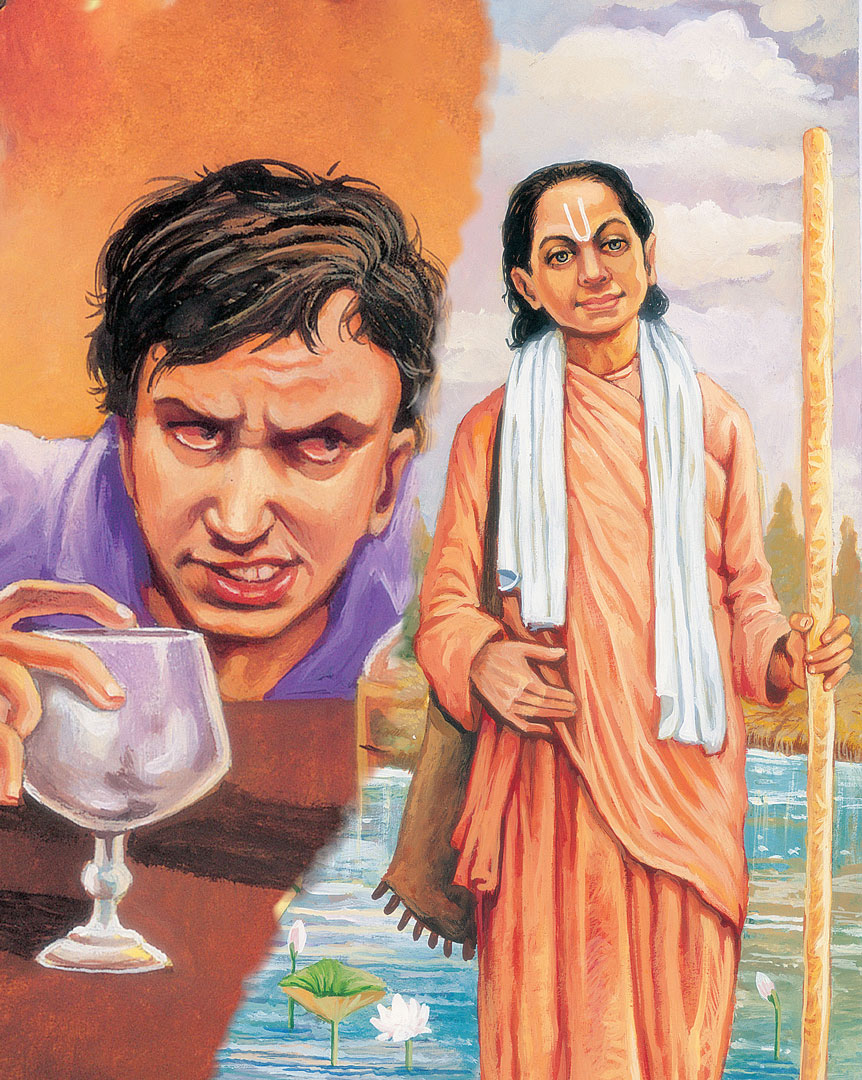

एतैर्विमुक्त: कौन्तेय तमोद्वारैस्त्रिभिर्नर: |
आचरत्यात्मन: श्रेयस्ततो याति परां गतिम् || 22||
etair vimuktaḥ kaunteya tamo-dvārais tribhir naraḥ
ācharaty ātmanaḥ śhreyas tato yāti parāṁ gatim
etair vimuktah kaunteya tamo-dvarais tribhir narah
acharaty atmanah shreyas tato yati param gatim
BG 16.22: Those who are free from the three gates to darkness endeavor for the welfare of their soul, and thereby attain the supreme goal.

Start your day with a nugget of timeless inspiring wisdom from the Holy Bhagavad Gita delivered straight to your email!
In this verse, Shree Krishna gives the result of renouncing lust, anger, and greed. As long as these are present, one is attracted toward preya, or happiness that seems sweet in the present but becomes bitter in the end. But when materialistic yearnings diminish, the intellect, free from the material mode of passion, is able to perceive the shortsightedness of pursuing the path of preya. Then one gets drawn toward shreya, or happiness that is unpleasant in the present but becomes sweet in the end. And for those attracted to shreya, the path of enlightenment opens up. They begin endeavoring for the eternal welfare of their soul, thereby moving toward the supreme goal.